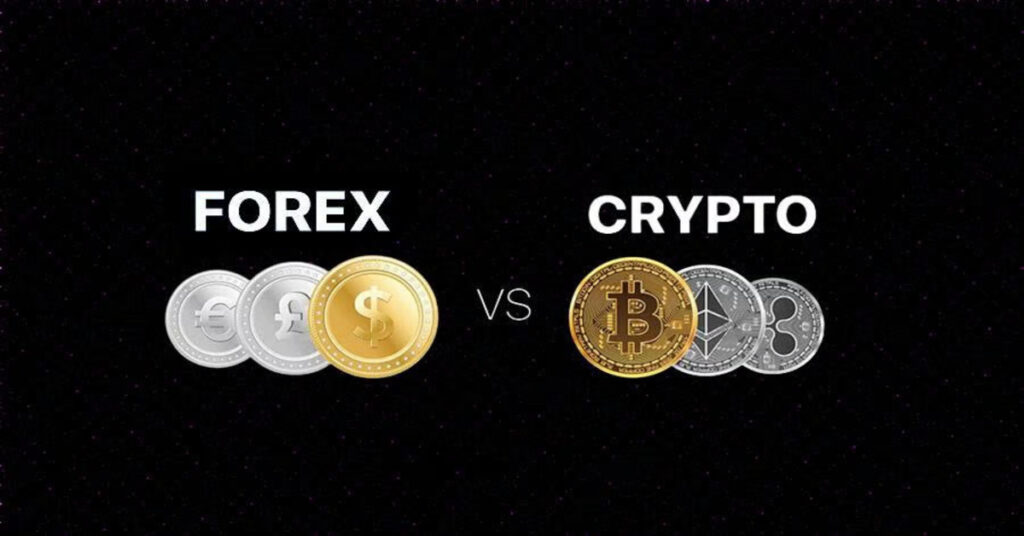How to Invest in Gold: A Comprehensive Guide
Investing in gold has been a popular choice for centuries, and for good reason. It has the potential to add stability and diversification to an investment portfolio, especially during times of economic turbulence. However, it’s important to understand the risks involved before making any investment decisions.
It’s crucial to keep in mind that all investments carry a degree of risk, and the value of investments can go down as well as up. Additionally, investing in a currency other than sterling exposes investors to currency exchange risk, which can affect the value of the investment in sterling terms. Despite these risks, gold remains a valuable asset for many investors seeking to diversify their portfolios.
How much gold is there?
The World Gold Council (WGC) estimates that all the gold mined to date would fit into a cube measuring 21 meters. Almost 90% of the world’s gold has been mined since the California Gold Rush in the 1850s. Half of the gold mined in the last decade has been used to make jewelry, while just over a quarter has been turned into bars and coins. The remaining gold has been used in technology and gold reserves for investment purposes. The Royal Mint, located in South Wales, produces all of the UK’s gold currency, including bullion bars and coins.
Who Owns Gold?
Gold is owned by central banks, governments, and individuals. The US holds the largest reserve of gold, weighing over 8,000 tonnes, which represents 4% of the total amount of gold mined to date. The UK sold off 400 tonnes between 1999 and 2002, when prices were low, and currently holds 310 tonnes of gold in the Bank of England’s vaults. Other countries with significant gold reserves include Germany, Italy, and France. Individuals also own gold, either in physical form or through exchange-traded funds (ETFs) and other investment vehicles.
What Affects the Price of Gold?
Gold is a limited commodity with a relatively static supply. The three largest gold-producing countries in 2022 were China, Australia, and Russia. The price of gold is highly sensitive to changes in demand due to its limited supply. Figure 1 shows that the price of gold per ounce has increased seven-fold over the last 30 years, from around £220 in 1993 to just over £1,600 in 2023.
Several factors affect the demand for gold and, therefore, its price. These include:
- Investment demand: Gold is often seen as a safe-haven asset that investors turn to during times of economic uncertainty or when inflation is high.
- Central bank demand: Central banks hold gold as part of their foreign exchange reserves, and their buying or selling of gold can impact its price.
- Jewelry demand: Gold is a popular material for jewelry, particularly in India and China, which are the world’s largest consumers of gold jewelry.
- Industrial demand: Gold is used in various industries, such as electronics and dentistry, which can also impact its price.
Other factors that can affect the price of gold include geopolitical tensions, currency fluctuations, and mining supply disruptions.
How is gold priced?
The London Bullion Market Association (LBMA) sets the gold price, which is observed globally. There are two types of gold prices: fixed and spot. For larger orders, LBMA members meet twice-daily via conference call to agree upon a price that clears their outstanding client orders. This is known as the fixed price. The spot price is a live price that is predominantly used for buying and selling gold bullion.
Why Invest in Gold?
Gold has always been a popular investment choice, particularly during times of economic volatility. Here are three reasons why investors may consider investing in gold:
1. Wealth Preservation
Inflation can erode the purchasing power of money over time. In contrast, gold has historically held its value and can provide a way to protect wealth against inflation.
During periods of high inflation, investors may turn to gold as a physical asset that can hold its value. The increased demand for gold during inflationary periods can result in a rise in gold prices.
Over the last 20 years, the average annual inflation rate in the UK has been 3%, while the price of gold has increased by an average of 10% per year. Adjusting for inflation, the ‘real’ value of gold has increased by an average of 7% per year.
2. Safe Haven
Gold is often viewed as a safe haven asset in times of economic and geopolitical uncertainty. Unlike currency, the value of gold is not influenced by a country’s policy on interest rates and money supply. Instead, the value of gold is primarily determined by supply and demand.
According to the World Gold Council (WGC), global demand for gold increased by 34% in the first quarter of 2022 due to the war in Ukraine. This trend continued throughout the year, with the WGC reporting that central bank purchases and retail investor buying lifted annual demand to an 11-year high.
3. Portfolio Diversification
Investing in gold can provide diversification benefits to investors. Along with cash, shares, bonds, and property, gold is another asset class that can help spread investment risk.
Gold is often described as having an ‘inverse correlation’ with other asset classes. This means that if stock markets are falling due to high inflation and economic uncertainty, investing in gold may produce a higher return.
Overall, gold can be a valuable addition to an investment portfolio, offering investors a way to protect their wealth against inflation, diversify their holdings, and provide a safe haven during times of economic and geopolitical uncertainty.
What are the drawbacks of investing in gold?
Investing in gold is not without its drawbacks. Here are some of the risks that investors should be aware of:
- The price of gold can be volatile and subject to fluctuations, just like any other asset class. Investors may have to wait for several years before they can sell their gold for a profit.
- Unlike savings accounts, bonds, and dividend-paying shares, gold does not produce any income or yield for investors.
- Trading physical gold can be challenging, especially for investors with limited amounts to invest. Additionally, buying physical gold requires verification of authenticity and safe storage.
- Geopolitical factors can also impact the price of gold, such as the G7 ban on imports of Russian gold in 2022.
It is essential for investors to weigh the potential benefits and drawbacks of investing in gold before making any investment decisions.
How can you invest in gold?
Investing in gold can be done directly by purchasing physical gold or indirectly by investing in gold and commodity funds or buying shares in gold mining companies.
1. Buy gold directly
Gold can be bought in the form of bullion, coins, or jewelry from precious metal dealers and banks. The value of gold is calculated by reference to its carats, with pure gold being 24 carats.
Bullion bars
Bullion bars are typically locked in bank vaults and range in weight from one gram to over 10 kilograms. They are stamped with the purity level and weight of gold.
Gold coins
The Royal Mint produces two common types of gold coin, the Britannia and Sovereign. Both coins are legal tender in the UK and are free of tax considerations for UK residents. Gold coins are sold in various sizes, with the smallest coins being the 1/10 ounce Britannia coin and the quarter Sovereign coin.
Gold jewelry
Gold jewelry carries additional risks to buying gold bullion, as there is typically a markup relative to the content of gold. This markup can be as much as three times the value of the underlying value of the gold. It is important to check the carat of the gold as a lower purity will reduce the base value.
When buying gold, it is important to use a reputable dealer. Secure storage options include vaults and bank safety deposit boxes, with the Royal Mint charging 1% annually of the value of your gold stored in its vault. If storing gold at home, it’s advisable to invest in a high-security safe and ensure adequate insurance cover.
2. Buy gold and commodity funds
Retail, pooled, or collective investments aggregate sums of money from different people into one large fund managed by a professional investment firm. These funds can be either actively or passively managed.
Funds investing in gold mining companies
Specialist commodities, mining, and exchange-traded funds (ETFs) can provide exposure to gold without the difficulties of trading and storing gold in its physical form. Funds investing in gold mining companies include BlackRock Gold and General, Ninety One Global Gold and LF Ruffer Gold. These funds have delivered returns ranging from 49% to 89% over the past five years.
ETFs
ETFs track the price of gold rather than the value of mining companies. Examples include the iShares S&P/TSX Global Gold Index and the ProShares Ultra Gold ETF, which have achieved returns of 84% and 88% respectively over the past five years. ETFs tend to have lower fees compared with active funds.
3. Buying shares in gold mining companies
Another way to invest indirectly in gold is to buy shares in companies that mine, refine, and trade gold. However, while the prices of mining company shares correlate to gold prices, their share prices are also impacted by other fundamentals such as profitability, geopolitical risks, and environmental issues.
Some of the largest global gold mining companies include Barrick Gold Corporation, Newmont Corporation, and AngloGold Ashanti. Investing in a mining company provides the opportunity for capital growth if the share price rises, along with income in the form of dividends.
As with other assets, any profit or capital gain made from investing in gold, whether directly or indirectly, will be potentially subject to capital gains tax (CGT). The current CGT allowance is £6,000 for the current tax year. However, CGT is not payable on Britannia and Sovereign coins as they are legal tender, or on gold-based investments (such as funds) held within an Individual Savings Account.
Gold is not the only precious metal that has seen appreciation in its price over the last 30 years. Other metals, such as silver, platinum, and palladium, have also seen similar appreciation. Metals will play a key role in the transition to green energy to meet the ambitious net-zero emissions targets set at the last COP 26 summit. Clean energy technology is heavily reliant on metals such as lithium, nickel, and cobalt to allow storage of energy in batteries.
There are a number of metal-specific ETFs, in addition to general precious metal ETFs, that can be invested in.
Should You Invest in Gold?
Gold has been known to offer investors a safe haven and a way of preserving wealth in a high inflation environment. Over the last 30 years, the price of gold has been volatile, but it has also delivered an increase in value. Investors can choose to invest in physical gold, mining shares, or gold-based funds and ETFs, depending on their preference and risk appetite. However, it is important to note that any investment in gold should form part of a diversified portfolio to manage risk.
It is crucial to keep in mind that investing in gold, like any other investment, carries risks. Investors may experience losses, and there is no guarantee of getting their money back. Therefore, it is advisable to seek financial advice before making any investment decisions to ensure that it is the right option for their individual circumstances.
Is gold a good investment during a recession?
Gold has been historically viewed as a hedge against a recession due to its low correlation with other assets, such as equities. According to the World Gold Council, gold prices have delivered positive returns in five of the last seven recessions. The chart below illustrates the performance of gold before, during, and after recessions. However, it is important to note that gold prices do not always rise during a recession, and investors should consider other factors such as geopolitical uncertainty.
Frequently Asked Questions
Where can gold be stored?
Gold can be stored at home, in a safety deposit box at the bank, or in a secure vault. It is important to ensure that the gold is adequately insured and stored securely regardless of the chosen method.
What is the best form of gold to invest in?
Investors have the option to choose from gold coins or bars, both of which offer different advantages but can be expensive to store and insure.
Gold coins are exempt from capital gains tax as they are considered legal tender in the UK. However, the mark-up on the spot price of gold tends to be higher due to the amount of work involved in making coins.
Gold bars, on the other hand, are not exempt from capital gains tax but are free of VAT. They generally have a lower mark-up on the spot price of gold and are available in smaller weights than coins.
Digital gold is another option that allows investors to buy gold in fractional quantities. This method has lower storage costs for larger bars and is priced by value, not weight.
Is VAT and capital gains tax payable on gold?
No VAT is charged on gold coins or bars. Capital gains tax is not charged on gold coins as they are considered legal tender, but it is charged on gold bars. However, investors can set their profits against their annual capital gains allowance, which is currently £6,000 for the 2023/24 tax year.
Where can I sell gold in the UK?
Gold can be sold to The Royal Mint, even if it was not purchased from there. Specialist gold companies, many of which are available online, also buy gold. Jewellers or pawn shops, either online or in person, are other options. It is important to ensure that the dealer is a member of the British Numismatic Trade Association, which must comply with a code of ethics. Additionally, sellers should use a reputable carrier with adequate insurance cover when sending gold.
What is digital gold and how does it work?
Digital gold allows investors to own a fractional amount of gold backed by the physical asset stored in the vault. Investors can invest smaller amounts and typically pay less for storage, as they are only buying a small percentage of a larger gold bar. Digital gold avoids the cost of fabrication for smaller bars and coins.









